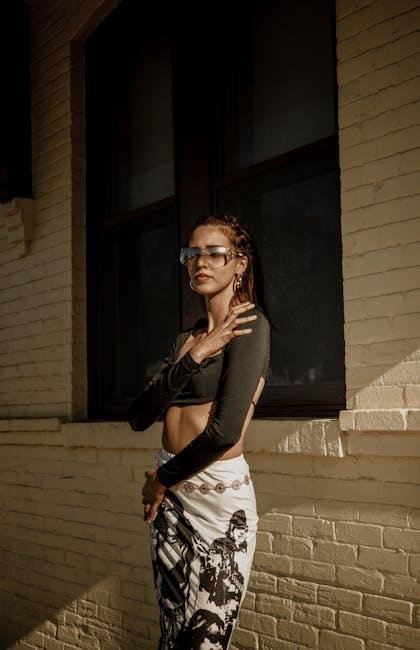In our screen-filled world, you’ve probably heard a lot about blue light blocking – those trendy glasses and apps promising to shield your eyes from the harsh glow of our devices. But with so much buzz, it’s easy to wonder: is blue light blocking truly a helpful tool for eye health and better sleep, or just another myth riding the wave of wellness trends? In this post, we’ll dive into what blue light actually is, how it affects us, and whether blocking it really makes a difference. Let’s shine some light on the facts and fiction behind this popular topic!
Table of Contents
- Understanding Blue Light and Its Effects on Your Eyes
- The Science Behind Blue Light Blocking Glasses: What Research Says
- Everyday Tips for Reducing Blue Light Exposure Without Feeling Restricted
- Choosing the Right Blue Light Protection for Your Lifestyle and Screen Time
- The Conclusion
Understanding Blue Light and Its Effects on Your Eyes
Blue light is a high-energy, short-wavelength light emitted by digital screens, LED lights, and even the sun. While we can’t avoid blue light entirely, excessive exposure—especially from smartphones, tablets, and computers—may lead to eye discomfort and potential long-term effects. Many people report symptoms like eye strain, dryness, and headaches after extended screen time. This has sparked growing interest in how blue light impacts our eye health and whether filtering it out could alleviate these issues.
Why does blue light affect our eyes? Unlike other light waves, blue light scatters more easily, making it harder for our eyes to focus. This contributes to digital eye strain, sometimes called computer vision syndrome. Additionally, blue light plays a role in regulating our sleep-wake cycle by influencing melatonin production, meaning too much exposure before bed might disrupt sleep quality. Some believe that blocking blue light can help reduce these problems by:
- Decreasing eye fatigue during prolonged screen use
- Improving comfort and reducing dryness
- Supporting healthier sleep patterns when screens are used at night
The Science Behind Blue Light Blocking Glasses: What Research Says
Modern lifestyles have dramatically increased our exposure to artificial blue light, primarily emitted from digital screens, LED lights, and smartphones. The core claim behind blue light blocking glasses is that by filtering out this high-energy visible light, they can reduce eye strain, improve sleep quality, and protect retinal cells from potential damage. Research in this area, however, paints a nuanced picture. While some studies highlight that these glasses can indeed reduce visual discomfort associated with prolonged screen use, the evidence regarding long-term protection against eye diseases remains limited and inconclusive.
What does the science say? Here’s a quick look at key findings:
- Blue light blocking lenses can reduce symptoms of digital eye strain like dryness, irritation, and blurred vision for some users.
- They may help regulate circadian rhythms by limiting blue light exposure during evening hours, potentially aiding in better sleep patterns.
- Current clinical evidence does not strongly support the idea that these glasses prevent macular degeneration or other long-term retinal damage.
Ultimately, while blue light blocking glasses provide genuine comfort for many screen-heavy individuals, they shouldn’t be seen as a cure-all. Incorporating good screen habits—like regular breaks and proper lighting—remains equally important.
Everyday Tips for Reducing Blue Light Exposure Without Feeling Restricted
Reducing blue light exposure doesn’t have to mean giving up your favorite devices or feeling boxed in by strict rules. One of the easiest ways to protect your eyes is by making simple adjustments that fit naturally into your daily routine. For example, activating night mode or blue light filters on your smartphone and computer can gently shift screen colors to warmer tones as the day winds down. Pairing this with establishing regular screen breaks—think the 20-20-20 rule: every 20 minutes, look at something 20 feet away for 20 seconds—can make a tremendous difference without disrupting your flow.
- Dim your ambient lighting: Using softer, warmer lights in the evening helps reduce the overall blue light bombarding your eyes.
- Swap screens for books: Opt for a physical book or e-reader with a non-backlit display to give your eyes a break from harsh, artificial light.
- Limit screen time before bed: Try to power down devices at least 30 minutes before sleeping to help your natural melatonin kick in.
Remember, small, consistent changes add up over time. You don’t need to overhaul your lifestyle overnight; by making thoughtful tweaks, you can protect your eyes and maintain your daily habits comfortably. This balance makes blue light management both practical and sustainable, allowing you to enjoy technology without feeling restricted.
Choosing the Right Blue Light Protection for Your Lifestyle and Screen Time
When it comes to protecting your eyes from blue light, one size definitely doesn’t fit all. Your choice depends largely on how much screen time you log daily and the type of devices you use. For instance, if you’re glued to your smartphone or tablet for extended periods, lightweight blue light filtering glasses with anti-reflective coatings might be your best bet—they’re comfortable and reduce glare without messing with screen colors. On the other hand, if your work involves long hours in front of multiple monitors, investing in specialized screen protectors or software solutions that automatically adjust the blue light emission based on the time of day can be a game changer.
Consider these points before making a decision:
- Duration: Short bursts? Try glasses with a subtle tint. Hours on end? Go for full-fledged filters or apps.
- Environment: Bright office or dim room lighting? Choose options that balance comfort and effectiveness accordingly.
- Device Type: Phone, laptop, or multiple screens—each may require a different approach.
- Personal Sensitivity: If you’re prone to headaches or eye strain, that’s a strong indicator to take blue light protection seriously.
Ultimately, the best protection blends seamlessly with your lifestyle and helps you stay comfortable without disrupting your digital habits.
The Conclusion
Whether you’re a night owl scrolling through your phone or someone who battles eye strain after hours at the computer, blue light blocking might just be worth a try—or at least worth understanding better. While the science is still catching up, many people find comfort and relief in using blue light filters, especially in the evening. So, if you’re curious, it doesn’t hurt to experiment with blue light blocking glasses or screen settings and see how your eyes and sleep respond. At the end of the day, taking steps to care for your eyes and prioritize good sleep habits is what truly counts. Thanks for reading—here’s to clearer eyes and sweeter dreams!
Related Products
-
Sale!
Frida Mom 2-in-1 Postpartum Pads, Absorbent Perine…
Mom Original price was: $19.99.$15.19Current price is: $15.19. -
John Deere Bubble Lawn Mower for Toddlers, Bubble …
Kids $29.99 -
Hanes Men’s EcoSmart Fleece, Pullover Crewneck Swe…
Clothing $9.31







